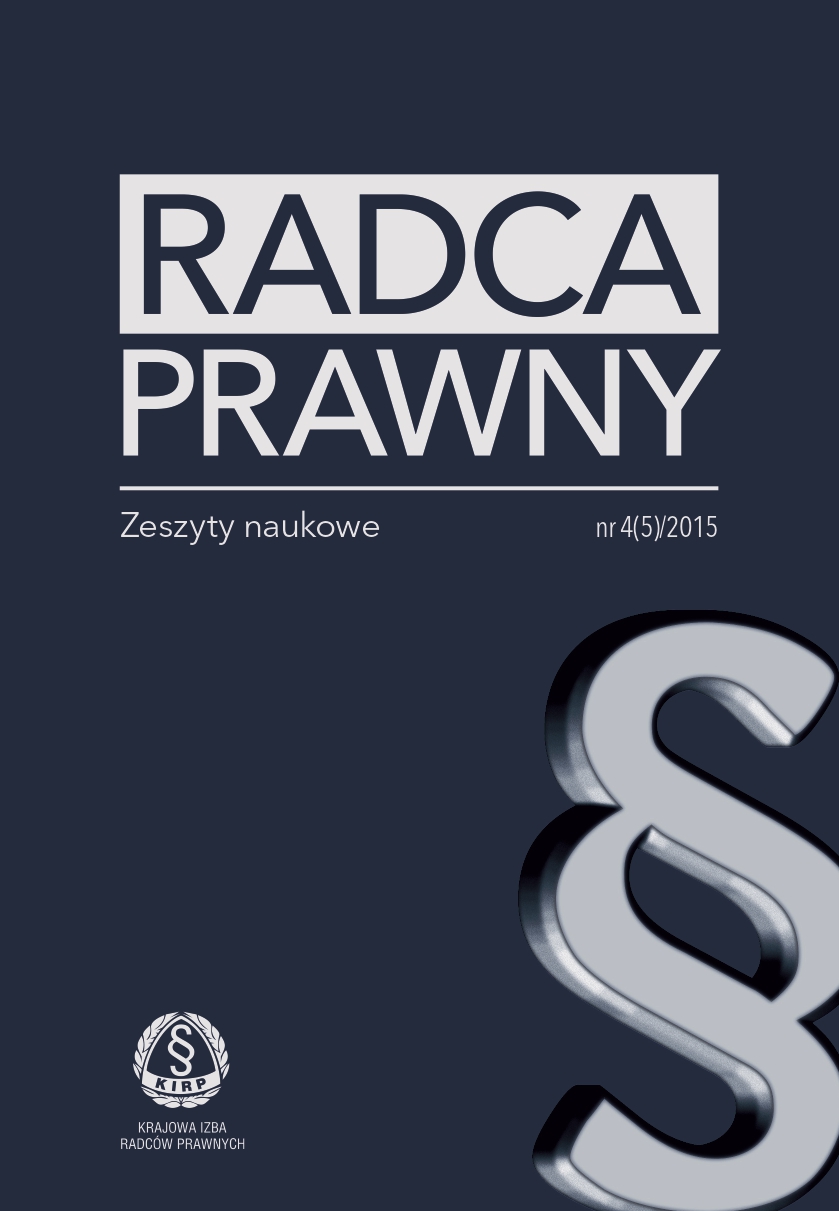Glosa do wyroku Trybunału Konstytucyjnego z dnia 11 marca 2015 r., sygn. P 4/14
Gloss on the judgment of the Constitutional Tribunal of 11 March 2015, Ref. No. P 4/14
Author(s): Eryk KosińskiSubject(s): Law, Constitution, Jurisprudence
Published by: Krajowa Izba Radców Prawnych
Keywords: Constitutional Tribunal; Court of Justice of the European Union; principle of supremacy (primacy) of EU law over national law of the Member States
Summary/Abstract: This gloss concerns the judgment of the Constitutional Tribunal of 11 March 2015, Ref. No. P 4/14. In said judgment, the Tribunal held that the provisions of article 14(1) and article 89(1)(2) of the Gambling Act of 19 November 2009 were consistent with, first of all, articles 2 and 7 in conjunction with article 9 of the Constitution, and, secondly, articles 20 and 22 in conjunction with article 31(3) of the Constitution. A dissenting opinion was submitted to the first part of the judgment by Judge Stanisław Biernat, who abstained from a substantive assessment of the second part of the judgment due to the nature of the reservations submitted to the first part. According to Judge S. Biernat, the consideration of questions of law submitted by the Supreme Administrative Court and District Court for Gdańsk-Południe that challenge the constitutionality of the provisions of article 14(1) and 89(1)(2) of the Gambling Act enacted by the Sejm, without observance of the procedure for the provision of information set forth in Directive 98/34/EC, lies outside the powers and jurisdiction of the Constitutional Tribunal. This position warrants support. In said case, the Constitutional Tribunal acted outside the scope of its powers and jurisdiction, leading to two-track adjudication between the Constitutional Tribunal and the Court of Justice of the European Union. Furthermore, principles of EU law that have been worked out over the years in EU case-law, namely the principle of supremacy (primacy) of EU law over national law of the Member States, the principle of direct effect of EU law, and the principle of effectiveness of judicial decisions by the CJEU, have been violated. The assertion that the discussed judgment may upset the delicate balance between the adjudicating powers of the Constitutional Tribunal and the CJEU, is therefore pertinent.
Journal: Radca Prawny. Zeszyty Naukowe
- Issue Year: 2015
- Issue No: 4
- Page Range: 177-190
- Page Count: 14
- Language: Polish

